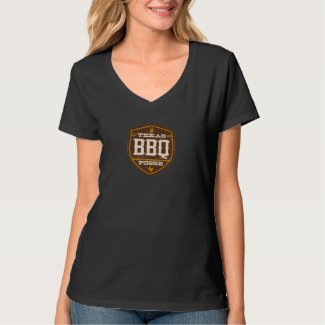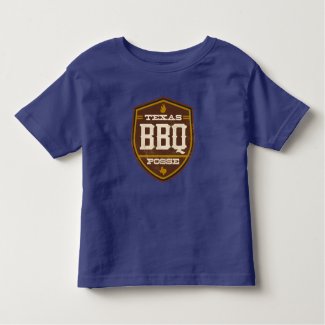 |
| Cooking Cornell Recipe chicken at the Rochester Canoe Club in the early 1980s. Photo: Gary Jacobson |
Within our great barbecue family, none of us stands alone. We're all influenced by someone or something else. Friends, relatives, pit masters, other cooks, experts, bloggers, books and all the joints we've ever visited, good and bad.
One of my main influences occurred almost 40 years ago when I first encountered the Cornell Recipe.
For fans of Texas barbecue who love dry rubs and post oak smoke, this may be a bit jarring. The Cornell Recipe is for a sauce -- a vinegar and oil marinade, if you prefer -- used on chicken.
The recipe is wonderful in its simplicity (see below). And it allows for some great barbecue theater.
On a long, cement-block pit, I've helped cook chicken for 100 guests, periodically splashing the sizzling quarters and halves into a pot of the sauce and then returning them to the grate. As the charcoal burned down, we lifted the heavy grates and kicked out a layer of blocks to get the chicken closer to the heat.
Labor intensive, yes. But lots of fun to cook…and to watch. It can be barbecue as performance art, even when you're using the Weber in your back yard.
 |
| Dr. Robert C. Baker Photo: Cornell University |
Dr. Robert C. Baker, a college professor, developed the sauce recipe while at Penn State after World War II. He took it with him to Cornell when he moved to the Ithaca, N.Y., school, and served it for decades at his Baker's Chicken Coop at the New York State Fair in Syracuse.
I "discovered" the Cornell Recipe in the late 1970s while working in Rochester, N.Y., about 90 miles from Ithaca. Ever since, the sauce has been a barbecue mainstay for me. Even hard-core barbecue fans like it. Meathead Goldwyn praises the sauce on his Amazing Ribs Web site.
While the recipe alone would be enough to put Baker in my culinary pantheon, he created many other food innovations, including poultry hot dogs, turkey ham and chicken nuggets, long before McDonald's. The New York Times once called Baker "something of a chicken Edison."
To translate that into Texan, we might call Baker the Aaron Franklin of chicken.
There's even a humorous song about his exploits:
O, Nugget Man
O, Nugget Man
Headin’ on down to that old Promised Land
Happy the meals all have been since the day
That the Nugget Man came our way
Baker died in 2006 at age 84. Before his memorial service, they held a chicken barbecue in his honor at his church.
In our great barbecue family, that rates among the highest forms of tribute.
Cornell Chicken Barbecue Sauce Recipe
From the Cornell Web site:
(enough for 10 halves)
1 cup cooking oil
1 pint cider vinegar
3 tablespoons salt
1 tablespoon poultry seasoning
1/2 teaspoon pepper
1 egg
Beat the egg, then add the oil and beat again. Add other ingredients and stir. The recipe can be varied to suit individual tastes.
Note: I use kosher salt.







